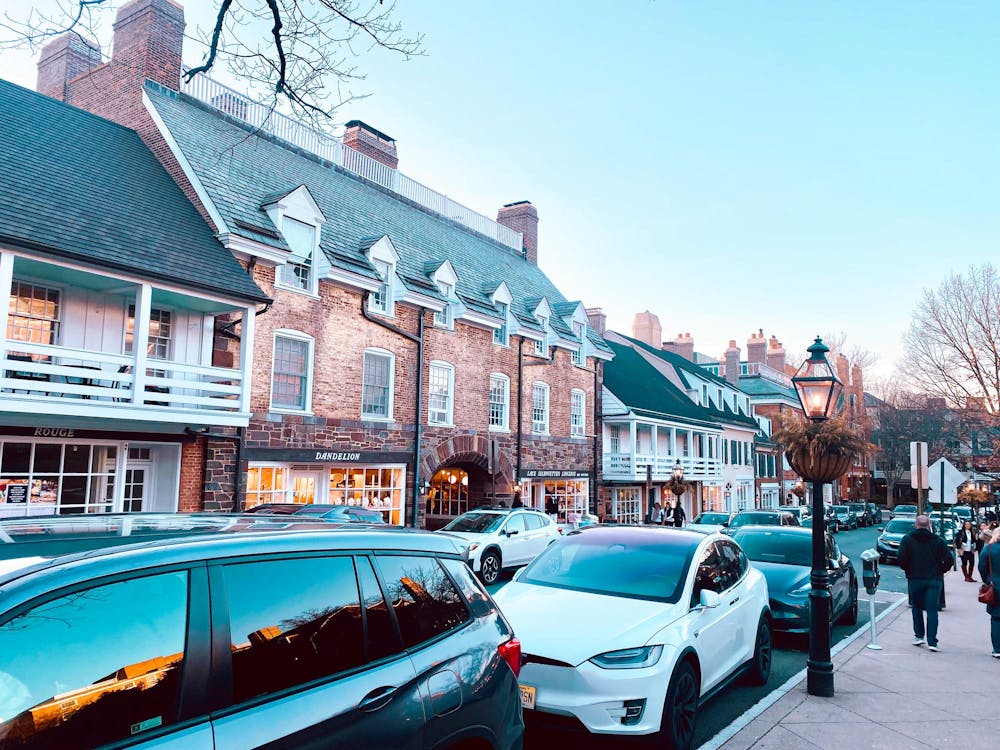Over the past four years, Princeton seniors have had little to complain about in terms of material well-being. Even though some of us lived in Butler housing and ate Wilcox food, at least the housing and food was all paid for — either by our parents or by Princeton. The grants-only program frees us from the burden of student loans. Out-of-state Princetonians on financial aid have obligatory summer savings, but the financial aid office often waived requirements for those who couldn’t meet them. This meant that while I, like many of my friends, held various part-time jobs, I was able to spend most of my earnings as I wished. Even the fiscally responsible could go out to dinners on Nassau Street and indulge in Bent Spoon and Twist. At Princeton, students don’t need to choose between comfortable housing and pricey dessert; the choice is usually which pricey dessert.
But as my friends and I think about our futures, a new form of fiscal responsibility comes to mind. During last semester, as people scrambled off to interviews and procrastinated with TigerTracks, some also expressed dismay at their future standards of living. Since the disappearance of readily available finance jobs, more students are reluctantly applying to non-profit opportunities. But eavesdrop on any conversation of seniors applying to Princeton Project 55 and you will hear a dolorous chorus of “How am I ever going to live off $25,000 in New York City?”
Recently, my friends and I have taken to jokingly saying, “We have no skills.” Why didn’t we go to school for welding or surveying? Then we’d have a job under the new stimulus package. I am also guilty of this self-indulgent worry, jokingly pointing out the unsavory neighborhoods I’ll be able to afford next year.
Even news reports bemoan the fate of graduates from elite universities. In Portfolio magazine, Princeton alumnus Michael Lewis ’82 reported on the difficulty students now have obtaining finance jobs. In October, The New York Times reported the woeful tale of a recent college grad who traded his hopes of a six-figure salary for a temp position.
But the truth is, Princetonians’ perceptions of a more impoverished life probably have more to do with our pampered, inside-the-bubble lives than with the stinginess of outside-the-bubble organizations. While it’s ironic that many Princeton students will take jobs that pay substantially less per year than the annual cost of a Princeton education, we will be far from destitute. According to the Class of 2008 Career Survey Report, the average salary received by a member of the Class of 2008 was $58,812. This figure exceeds even the national median household income of $50,233. Sure, last year’s results are tilted towards the high end because of the high percentage of students going into finance (average: $64,082) and “services” (average: $60,522), which includes consulting.
Nonetheless, a closer look at the pay for jobs outside of finance and consulting is still pretty good. The average salary was $44,167 for those going into communications, $37,840 for those going into non-profit work and $45,740 for those going into government jobs. These figures are all substantially higher than the average income for 22- to 24-year-olds in 2007, which was $25,848 according to the U.S. Census.
Though no American can escape the reach of the current financial crises, Princeton students are not going to bear the brunt of the collapse. Even if the Class of 2009’s average salary is lower than that of the Class of 2008, we probably won’t be out on the streets. While our liberal arts education may not have given us immediately sellable skills like welding or surveying, we should be relieved that there are still fellowships, internships and even Wall Street jobs still open to us. What our liberal arts education does give us is the ability to analyze and evaluate challenges with a widened perspective.
So we may have to go a few years without a subsidized gym, free laundry and a limitless library, but we still have our youth and, with that, time to figure things out.
Cindy Hong is a Wilson School major from Princeton, N.J. She can be reached at cindyh@princeton.edu.









